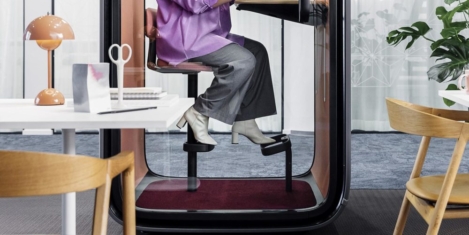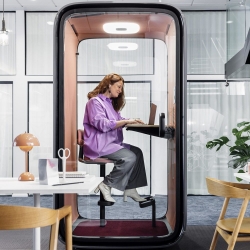To provide the best experiences, we use technologies like cookies to store and/or access device information. Consenting to these technologies will allow us to process data such as browsing behaviour or unique IDs on this site. Not consenting or withdrawing consent, may adversely affect certain features and functions.
The technical storage or access is strictly necessary for the legitimate purpose of enabling the use of a specific service explicitly requested by the subscriber or user, or for the sole purpose of carrying out the transmission of a communication over an electronic communications network.
The technical storage or access is necessary for the legitimate purpose of storing preferences that are not requested by the subscriber or user.
The technical storage or access that is used exclusively for statistical purposes.
The technical storage or access that is used exclusively for anonymous statistical purposes. Without a subpoena, voluntary compliance on the part of your Internet Service Provider, or additional records from a third party, information stored or retrieved for this purpose alone cannot usually be used to identify you.
The technical storage or access is required to create user profiles to send advertising, or to track the user on a website or across several websites for similar marketing purposes.
 New research from LinkedIn claims to highlight a potential impending ‘flexidus’ amongst women in the UK workforce, with 52 percent saying they’ve considered leaving, or have left, their role due to a lack of flexibility. According to the research, a perceived lack of flexibility at work is having a significant impact on women’s careers. Of the women who have left a job because of a lack of flexible working, more than one in five (21 percent) say their career progression has been hindered, and 25 percent decided to take a career break as a result. (more…)
New research from LinkedIn claims to highlight a potential impending ‘flexidus’ amongst women in the UK workforce, with 52 percent saying they’ve considered leaving, or have left, their role due to a lack of flexibility. According to the research, a perceived lack of flexibility at work is having a significant impact on women’s careers. Of the women who have left a job because of a lack of flexible working, more than one in five (21 percent) say their career progression has been hindered, and 25 percent decided to take a career break as a result. (more…)




















 Employees with full autonomy to choose where they work are happier in their job, yet only one in five are currently able to do so. And though 60 percent of all employees prefer hybrid working, only 39 percent are able to flexibly split their time between the home and office. This is according to Jabra’s 2022 edition of the
Employees with full autonomy to choose where they work are happier in their job, yet only one in five are currently able to do so. And though 60 percent of all employees prefer hybrid working, only 39 percent are able to flexibly split their time between the home and office. This is according to Jabra’s 2022 edition of the 












May 18, 2022
Dogs need to be part of The Great Workplace Conversation too
by Mark Eltringham • Comment, Flexible working